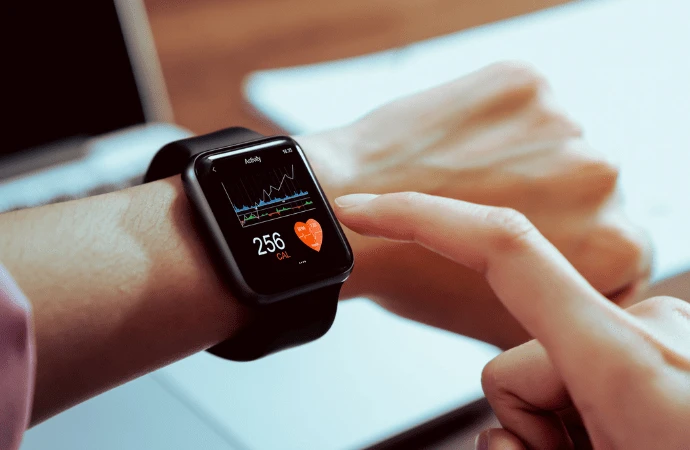In the fast-evolving landscape of healthcare, wearables and monitoring devices are emerging as indispensable tools, particularly in the wake of the Covid-19 pandemic. These digital companions offer more than just convenience; they hold the potential to revolutionise how we approach healthcare delivery and management. However, their proliferation also brings challenges, notably the overwhelming influx of data that can burden already stretched healthcare professionals.
Empowering Health: The Role of Wearables in Diabetes Management and Beyond
The significance of wearables and monitoring devices cannot be overstated, especially in the context of empowering individuals to take charge of their health. With the population ageing and an increasing prevalence of long-term conditions, there is a growing need to leverage digital technologies to enhance healthcare outcomes. The NHS Long Term Plan underscores the importance of equipping individuals with information to proactively manage their health, a goal that aligns perfectly with the capabilities of wearables and monitoring devices. One area where these devices have demonstrated significant promise is in the management of diabetes. The adoption of continuous glucose monitoring among individuals with type 1 diabetes has soared, enabling them to fine-tune their glucose levels based on real-time data. This not only enhances control over their condition but also fosters a deeper understanding of how their bodies respond to various factors.
Harnessing Wearable Data: Balancing Benefits and Challenges in Healthcare Delivery
Moreover, the integration of wearable data with existing medical records offers healthcare professionals a more holistic view of an individual's health. By identifying patterns and correlations between symptoms, lifestyle factors, and disease progression, clinicians can make more informed decisions and tailor interventions accordingly. This seamless flow of information between individuals and healthcare providers is paramount in achieving better health outcomes, reducing hospitalisations, and optimising healthcare services. However, amidst the potential benefits, there looms the challenge of data overload. Healthcare professionals express legitimate concerns about the sheer volume of data generated by these devices and the ensuing burden it places on clinical workflows. Questions arise about responsibility for data monitoring and the effective prioritisation of actionable information amidst the noise of non-actionable data.
Setting the Standard: Advancing Diabetes Care with Information Standards
To address these concerns, it is imperative to establish clear standards for data collection, sharing, and interpretation. The Diabetes Record Information Standard, developed by the Professional Record Standards Body (PRSB) in collaboration with NHS England, exemplifies a step in the right direction. This standard ensures consistency in the recording and sharing of diabetes-related information, facilitating informed decision-making and enhancing self-management practices. Real-world testing of the Diabetes Record Information Standard is currently underway, aimed at validating its effectiveness and gathering valuable feedback for further refinement. Initiatives like the recent pilots with DigiBete and North West London ICB showcase tangible progress towards improving diabetes care through standardised record-keeping practices.
The advent of wearables and monitoring devices heralds a new era in healthcare, promising personalised, data-driven approaches to wellness. However, realising this potential necessitates a concerted effort to navigate the challenges posed by data overload and interoperability. By embracing information standards like the Diabetes Record Information Standard, we can pave the way for a future where technology empowers both individuals and healthcare professionals to achieve better health outcomes.
Source: Digital Health
Image Credit: iStock






